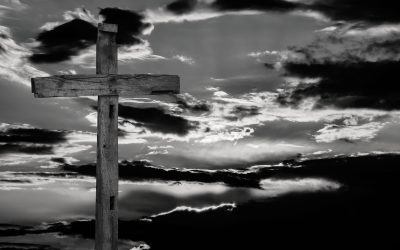King Achaz, a king of Judah who did not walk in the ways of the Lord, provided all the cities of Judah with sacrificial heights. There, incense was offered and one of the ingredients in it was cannabis. Stuff you can buy today in the coffee shop or on the Internet to get into "higher realms.
Achaz
King Achaz1 lived approximately in the 2th half of the 8th century before Christ. He was an evil king who served idols and promoted the same in many ways in Judah.
In 2 Kings 16 and 2 Chronicles 28 you can read the history of Achaz.
All the silver and gold he removed from the house of the Lord and sent it as a gift to the king of Assyria. In Jerusalem he had an altar built just like the one that stood in Damascus and he put it in front of the brazen altar of burnt offering. Here he sacrificed to the gods of the kings of Syria because they had helped in the battle against Achaz. Then in 1 Kings 16 it describes how he put this altar to the strange God at the house of the Lord and went step by step and dismantled the service for the Lord. He moved the altar of burnt offering, the laver and the entrance for the king2.
All the objects in the house of the Lord he destroyed and after some time he closed the doors of the house of the Lord. No one could enter it anymore, so that was the end of the story. No service to the God of Israel remained. Nothing.
Instead, Achaz made altars on every street corner in Jerusalem to offer incense offerings to the foreign gods.
As if this were not enough, he also did similar things in the area of Judah. It says that he had heights made in every city in Judah to offer incense sacrifices to other gods.
The Way of Achaz
One could also very well compare the path that Achaz takes to the process a Christian goes through when he opens up to the invisible world outside of God.
Achaz had a father, Jotam, who served the Lord (2 Chronicles 27:2). But Jotam's religion was probably more outward, rather than having a relationship with the Lord. Thus it says of him "Alone he did not enter the temple of the Lord. Therefore he did not precede the people in service to the Lord. One might say that Achaz did "get it from home," but when he had to stand on his own two feet, quickly took the wrong track.
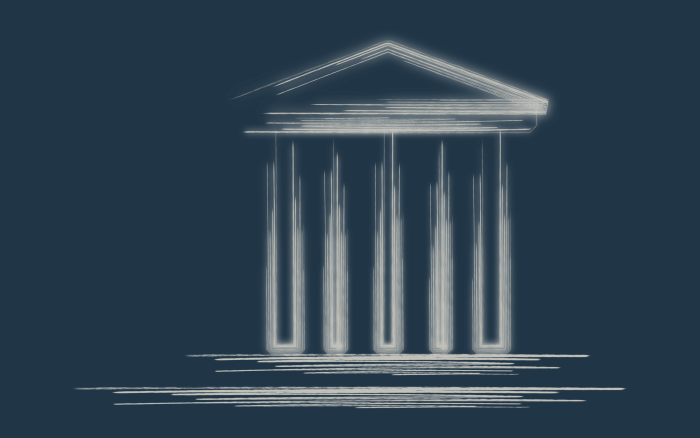
It began in this case with the fact that Achaz's "faith" (so to speak) did not "work"; it did not do anything for him and he had no personal relationship with the Lord. If then the gods of Syria did help the king of Syria, he should just bring this god to Jerusalem as well. At least this is a god who does not abandon his people.
Translated to our time, that is, for example: if faith is not alive with you, there are solutions - often from ancient traditions - to experience more of God.
What happens next is that the sacrifice of the Lord Jesus Christ takes a back seat. Actually literally, because the altar of burnt offering disappears behind the temple (2 Kings 16:14). Then he himself no longer enters the temple either, because the entrance for the king is removed.
As a Christian, you also no longer come to the meeting of a church, because you can also meet God in nature, can't you? In all cases you then lose the person and work of Christ before your heart. The burnt offering is gone, that very thing that is so important to the Lord. Moreover, it was necessary because its fire was to keep the incense offering burning. Without the burnt offering you cannot bring incense.
The religion Achaz was left with was the religion of self-love. Altars to the Syrian gods so that when you walked in the city, you were constantly and insistently reminded of how good you are yourself and that all is well with you. You could sacrifice incense anywhere in the city and what you sniffed from it caused you to "feel good faith. The belief of "love yourself above all else," after all you yourself are god.
Achaz ended up with the Syrian gods and left the Lord, the God of Israel. It is the picture of a path that many Christians today, unfortunately, also take.
Tel Arad
One such city where Achaz in all likelihood built a place of sacrifice is Tel Arad. The place is located on the border of the desert of Judea and the Negev desert. As a result of archaeological research, it is believed that this city was founded approximately in the 10th century B.C. was built, that is, in the time of David and Solomon.
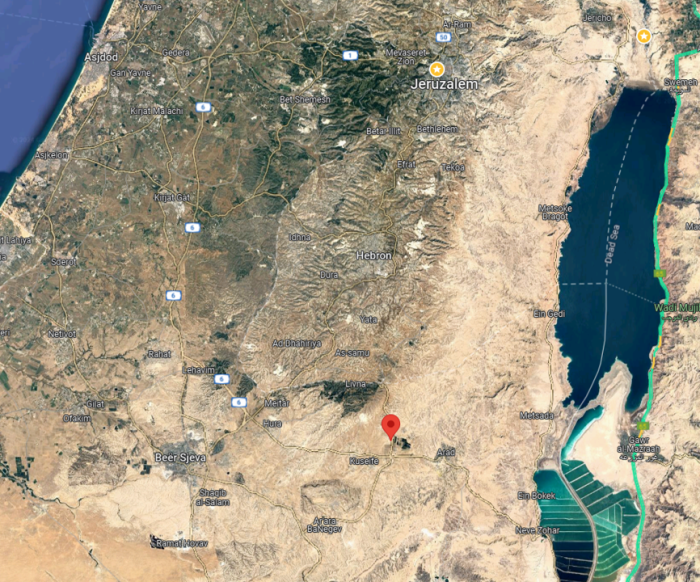
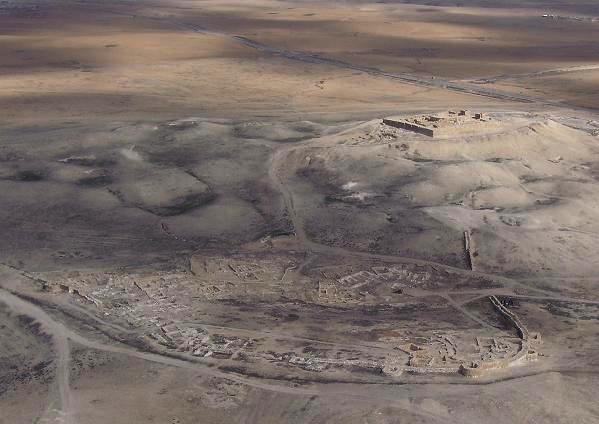
Interestingly, on a height above the city a fortification was built containing a temple (sacrificial place). It was believed that this sacrificial place was also from the 10th century B.C., but more recent research shows that this temple dates from the 8th century before Christ dates3. Therefore, it may very well be one of the sacrificial heights that Achaz had built in each city.
The finding of the two altars
The impetus for this article is the video below about finds in Tel Arad. I suddenly ran across it on YouTube. This video reports the discovery of cannabis residues on one of the two sacrificial altars found there.
In case the video cannot be seen here, this is the link to YouTube: https://youtu.be/dDReygTAnqw?si=r7wl6CwpRIMabeDk
In the sanctuary were two altars, not very large, something like 40 to 60 cm high. For a long time it was unclear what these were used for, but recent research has investigated4 What residues of certain substances were present on the surface of the top.
The research report states that "on the smaller altar, cannabis had been mixed with animal dung to facilitate heating, while the larger altar contained traces of incense mixed with animal fat to promote evaporation. These unique finds shed new light on cult practices in biblical Judah and suggest that cannabis was used here as a deliberate psychoactive substance, to stimulate ecstasy as part of cultic ceremonies."
It is remarkable to note that in the time of ancient Israel the same substances were already used to "get into higher spirits" as today. Stuff you buy in the coffee shop today or order on the Internet. Satan apparently still does it in the same ways; there is nothing new under the sun.
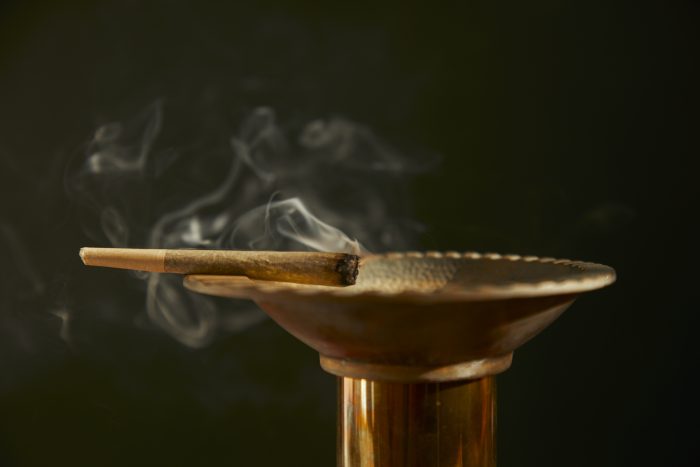
Two offerings
It is a very special scene that we see here. It is an image that we actually see throughout the Old Testament with the people of Israel. It is idolatry, the mixing of service to the Lord and the gods. That does become very evident here in that which is sacrificed.
On the one hand, incense mixed with animal fat. It reminds us of the incense that played an important role for the Lord from the beginning of the sacrificial service. But also the animal fat that was not to be eaten by the Israelites; it was for the Lord.
It is very similar to the sacrifices that the people of Israel had to make. But it is a very weak copy of it, because the other animal sacrifices are completely missing here.
In addition, the cannabis mixed with animal dung on the other altar. This was clearly for the other god, for it was completely contrary to the regulations for Israel. Manure was not allowed to be burned on the altar, but had to be brought outside the army place. As for cannabis, that put the sacrificers in a state of ecstasy so they could experience the deity (they thought).
What we can observe is that these sacrifices are very remotely derived from the sacrificial service to the Lord, but if you look at it properly in its completeness are completely pagan sacrifices.
this sacrificial service is completely pagan
As a matter of fact, the picture we find here also resembles many Christian meetings or church services, where on the one hand biblical words are used, but on the other hand full play is made on "experiencing god. A mixing of Christian truth with pagan beliefs and practices, to meet human needs.
But Christ the Crucified is missing; when it should be about Him, right?
Two gods
In a research report5 About the finding of the two altars we find the following:
"Previous scholars have established the theory that the two altars were dedicated to two deities worshiped in the shrine, possibly a divine pair," write Arie, Rosen and Namdar. In other shrines where two incense altars were found together, "the same conclusion has been drawn about multiple deities being worshiped." Shards of pottery bearing the name "Yahweh" were found at the shrine; his consort was the Goddess Asherah, to whom incense was burned, about whom the Hebrew Scriptures wrote disapprovingly. "Inscriptions from two sites in southern Palestine seem to indicate that she was also worshiped as the consort of Yahweh."
This suggests that researchers/scholars assume that Yahweh and Asherah were seen as a pair of gods at that time. In the thinking of the Israelites, they served Yahweh as well as Asherah with whom he was associated. But when an Israelite serves idols and thinks he is serving the Lord, the Bible calls it Baal.
Then it also makes sense that the combination of Baal and Asherah would be6 occurs more often in the Old Testament, as here:
- "(...) they forgot the LORD their God and served the Baals and the Asheras." (Judges 3:7, NBG51 translation)
- "(...) the four hundred and fifty prophets of Baal and the four hundred prophets of Asherah, eating at the table of Izebel." (1 Kings 18:19).
- "(...) for all the objects that were made for the Baal, the Asherah and all the army in the sky (...)" (2 Kings 23:4).
We serve all the gods, but that's fine, isn't it?
We have written many times before that the people of God mixed pagan practices and beliefs with service to the Lord. But that it went as far as we have seen here now, I honestly have never realized before.
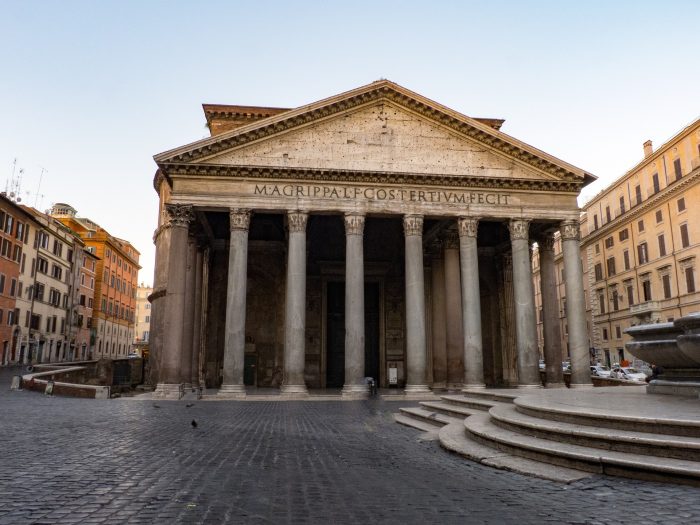
It seems they have a whole pantheon of7 (= "all the gods") of the nations and gave their own God Yahweh a place in it as well. Probably the highest place, but still. Thus, the temple that the later godless king Manasseh left behind in Jerusalem does indeed literally seem like a pantheon when you read what Josiah later found there.
In the "legacy" of King Manasseh, the temple contained 'objects made for the Baal, Asherah and all the army in the sky' (2 Kings 23:4), as well as specially appointed priests who 'offered incense offerings to the Baal, the sun, the moon, the constellations and all the army in the sky" (2 Kings 23:5). In short, a complete service to all the gods.
Yet the Israelites were unaware of any evil and thought it was perfectly normal for them to serve the Lord and the gods.
- "How then can you say, I have not defiled myself, I have not gone after the Baals?" (Jeremiah 2:23)
- "And then you still say, Verily I am innocent; yea, His wrath is turned away from me. Behold, I am going to have a trial with you, because you say, I have not sinned." (Jeremiah 2:35)
- "A son honors his father and a slave his lord. If then I am a Father, where is the reverence for Me? And if I am a Lord, where is the fear of Me?" says the LORD of hosts against you, priests who despise My Name. But you say, Wherefore do we despise Your Name? Because you bring unclean bread upon My altar. And you say, By what do we make You unclean? Because you say, The table of the LORD, it is vile." (Malachi 1:6-7)
- "Return to Me, and I will return to you, says the LORD of hosts.
But you say, In what respect should we return? Would a man rob God? Truly, you are robbing Me! And then you say: Of what are we robbing You? Of the tithes and the heave offering!" (Malachi 3:7-8)
Hezekiah, the great cleansing and the Passover
What should you do when you know that what is happening around you is wrong and so terribly wrong that God does have to intervene with His judgment? Because those were the circumstances in which Achaz's son, Hezekiah became king. Presumably Hezekiah was raised and influenced by his mother (and grandfather) so that he knew what was right in the eyes of the Lord. It says that "he did what was right in the sight of the LORD, in accordance with all that his father David had done." (2 Kings 18:3).
This last expression means that he had the same heart's desire, as David, namely, to build for the Lord a house where His people could serve Him. It concerned David that he himself had a house, but not the Lord (2 Samuel 7:27). David understood that the Lord longed to be served and honored, when in that same conversation he tells the Lord, among other things, "Let Your Name be magnified for ever by saying, The LORD of hosts is God over Israel." (2 Samuel 7:26). For Israel is the people "the only people on the earth that God went to redeem to be a people for Him, to make Himself a Name" (2 Samuel 7:23).
These were the things that were also in Hezekiah's heart and therefore he was able to call the priests and Levites with the following words:
"Now it is in my heart to make a covenant with the LORD, the God of Israel, so that His burning wrath may turn away from us. My sons, do not be negligent now, for the LORD has chosen you to stand before Him to serve Him, to be servants before Him, men who bring sacrifices." (2 Chronicles 29:10-11).
Just read in 2 Chronicles chapters 29 through 31 the wonderful story of how the temple was cleansed, the Passover celebrated and the temple service restored. Joy and praise all around!
It reminds us that Christ is our Passover and that He was slaughtered for us (1 Corinthians 5:7). That work of the Lord Jesus on the cross of Calvary must be the foundation - and constantly the center - of our life as Christians. It is the most important thing we can do for God our Father: Honoring and praising Him for the sacrifice of His Son, our Lord, Jesus Christ.
And in these last days, what do we do?
Christendom today seems like a pantheon where all the gods are pretty much served. The gods of Eucharist, the Mass, saint worship, rosary, labyrinth, tongues, soaking, silence, Lectio Divina (or also called "sacred reading"), songs of Taizé, healings, falling in the spirit, prophecy, deliverance, worship, laying on of hands, impartation and you name them all. Something for everyone, it's just what you need and what suits you best.
Not to mention ecumenism which shows a worldwide pantheon of all religions.
Hezekiah also made all the tribes of Israel8 invited, "that they should come to the house of the Lord in Jerusalem to keep Passover before the Lord, the God of Israel" (1 Chronicles 30:1). The invitation was received with derision and laughter in Israel. Yet there were those who heeded it: "But some men from Asher and Manasseh and from Zebulun humbled themselves and came to Jerusalem" (2 Chronicles 30:12 EBV).
How wonderful it would be if all brothers and sisters in Christ, who want to separate themselves from everything pagan in Christendom, would unite to "proclaim together the Lord's death" (1 Corinthians 11:24).
Humility was apparently necessary to go up to Jerusalem. Today the same humility is still9 necessary for every believer who wishes to commemorate the Lord's death with others. But it seems that we find it difficult to very simply fulfill together what the Lord Jesus likes to see from us.
For I have received from the Lord whatever I have handed down to you, that the Lord Jesus in the night in which He was betrayed,
took bread, and after giving thanks, He broke it
and said, Take, eat; this is My body, which is broken for you.
Do that to My remembrance.
Likewise, He also took the drinking cup, after using the meal,
and said, This cup is the new testament in My blood.
Do so, as often as you drink them, to My remembrance.
For as often as ye eat this bread and drink this cup,
Proclaim the Lord's death until He comes."
(1 Corinthians 11:23-26)
Footnotes
- See 2 Kings 16, Isaiah 7-9 and 2 Chronicles 28. Also https://www.christipedia.nl/wiki/Achaz ↩︎
- Apparently the temple had a special entrance that provided access to the king. 1 Kings 16:24. ↩︎
- See the sources listed with the video. ↩︎
- I looked at a number of documents and based my text on them. https://www.academia.edu/43193018/2020_Cannabis_and_Frankincense_at_the_Judahite_Shrine_of_Arad
https://www.tandfonline.com/doi/full/10.1080/03344355.2020.1732046
https://www.sciencedaily.com/releases/2020/05/200529093125.htm ↩︎ - https://www.academia.edu/83265942/Cannabis_Used_to_Stimulate_Ecstasy_Found_at_Ancient_Shrine_To_The_Goddess_Asherah ↩︎
- In the Hebrew Bible, Asherah appears 40 times. Asherah is sometimes a divine person, sometimes a sacred symbol of that divine person and is always mentioned in a negative context, as (symbolizing) an idol. In modern Dutch translations, Asherah is mentioned 6 times (1 Kings 15:13; 18:19; 2 Kings 21:7; 23:4,7; 2 Chronicles 15:16). In the Staten Translation, the name Asherah does not appear: it speaks of "an odious idol in a forest" (SV 1977 1 Kings 15:13, 2 Chronicles 15:16 - here the NBV gives: "an offensive image of Asherah") or "a (carved) image of the forest" (SV 1977 2 Kings 21:7, 23:4,7 - here the NBV gives: "an image of the goddess Asherah"). ↩︎
- A pantheon is a house/temple for all the gods ↩︎
- Referred to as "Ephraim and Manasseh" (2 Chronicles 30:1) ↩︎
- Humility is our biggest problem. We have written about it before:
– https://goddienen.nu/god-dienen/over-de-christelijke-kerk/gezag-in-de-gemeente/nederig-en-onderdanig/
– https://goddienen.nu/god-dienen/over-de-christelijke-kerk/gezag-in-de-gemeente/
– https://goddienen.nu/over-de-zondeval-en-nederigheid/ ↩︎

